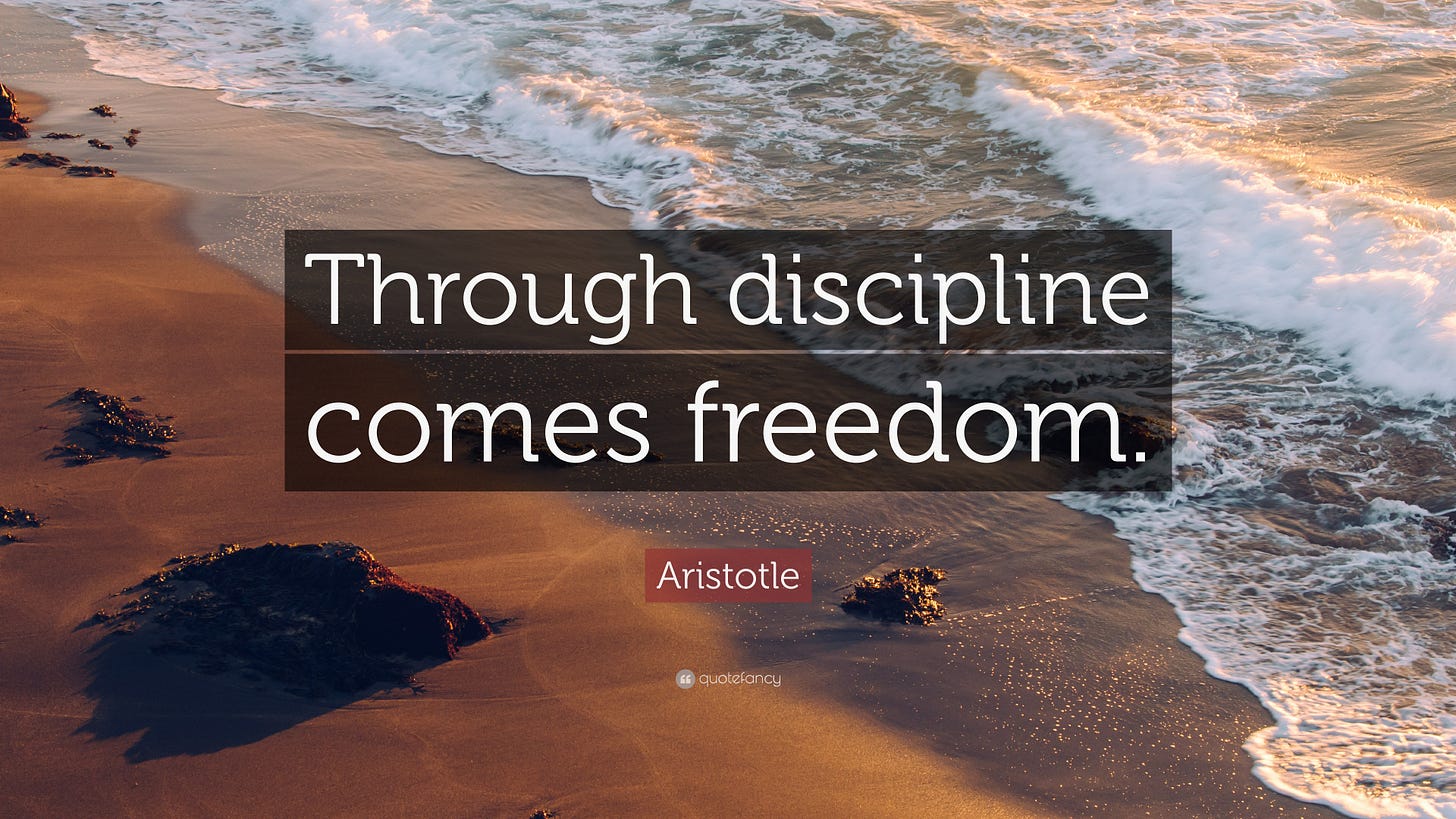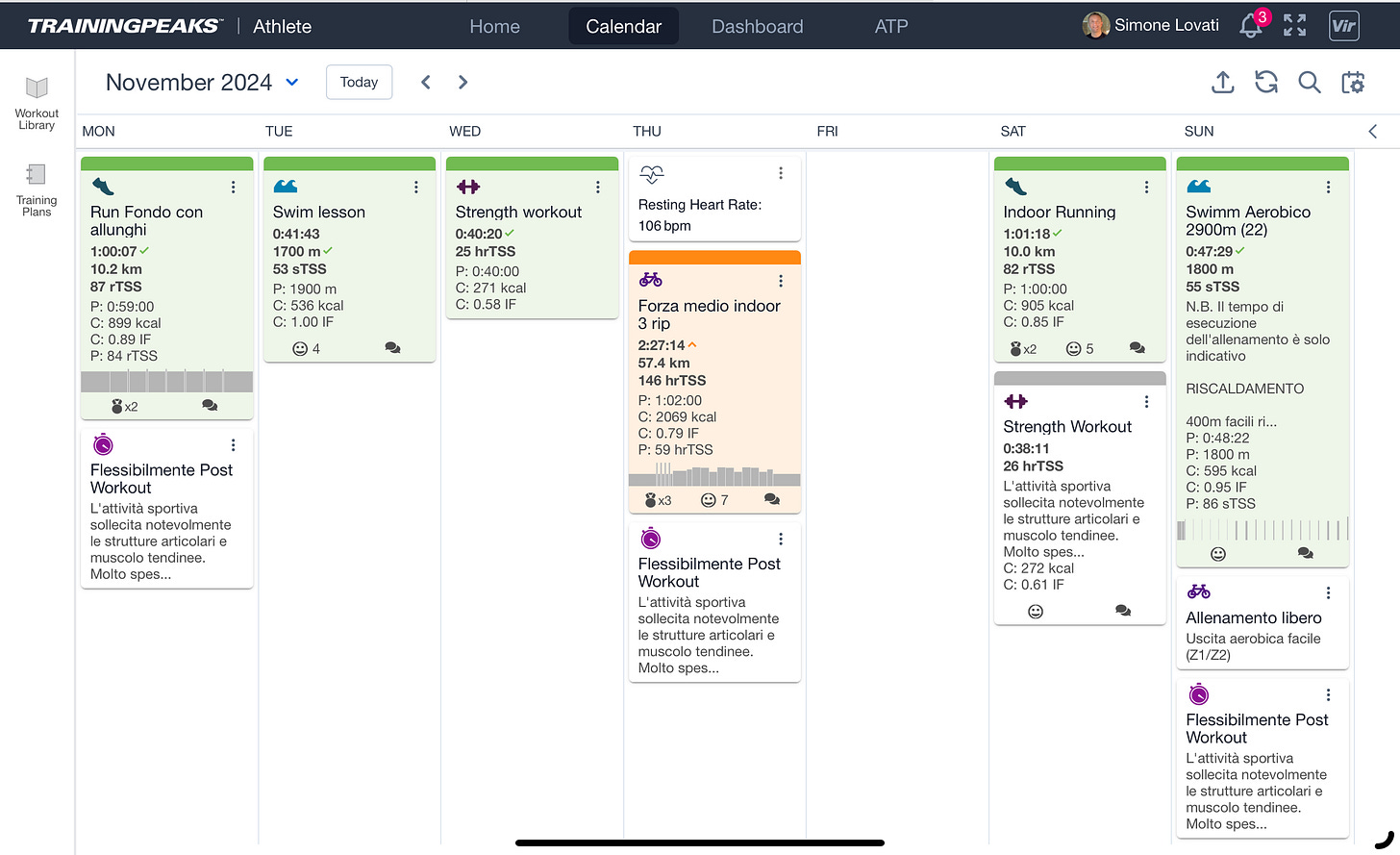Discipline Redefined: Unlocking Strength by Listening to Your Body
Achieving Your Goals Through Balance, Awareness, and Self-Respect
Abstract
Discipline is the foundation of achieving a healthy, happy, and fulfilling life. While it demands effort and perseverance, discipline can unlock incredible rewards. However, true success doesn’t come from pushing limits blindly—it comes from knowing when to push and when to pause. This article explores the crucial role of listening to your body’s signals to avoid burnout, sustain motivation, and achieve your goals safely and effectively. By combining discipline with awareness, you can create a balanced approach that leads to lasting strength and satisfaction.
Introduction
Discipline: The Secret to a Healthy and Happy Life
If there’s one lesson we’ve all learned, it’s that living a healthy and happy life requires discipline. Discipline to say no to junk food, to resist life’s temptations, to limit alcohol and smoking, to sleep well, or, more simply, to avoid picking up your phone every minute to check notifications or scroll through other people’s lives on Instagram.
Why is it so difficult?
The truth is, we’re all “addicted” to dopamine. This neurotransmitter, responsible for pleasure, reward, and motivation, plays a crucial role in our behavior. Actions like eating sweets, drinking a glass of wine, or scrolling through social media trigger dopamine production in the brain, creating an immediate sense of gratification. And it’s precisely this chemical response that makes us so vulnerable to unhealthy habits.
We know, but we do it anyway
Take my case: I know perfectly well that overeating at night, especially after a long and intense workday, will disrupt my sleep. Yet, the tougher the day, the stronger my urge to eat everything in sight. I might even indulge in chocolate after dinner, even though I know it upsets my stomach. “Everyone needs to let loose once in a while,” you might say, and you’d be right—we’re human, after all.
But the problem isn’t usually a lack of knowledge. We know what’s good for us and what isn’t. The real challenge is execution: the ability to act on what we know is right. And it’s no different in business: you can have the best strategy in the world, but without solid execution, you won’t get anywhere.
Discipline as a fundamental skill
Self-discipline is the key skill for effective and successful execution.
“I count him braver who overcomes his desires than him who conquers his enemies; for the hardest victory is over oneself.” - Aristotle
A delicate balance
However, discipline, like anything else, must be balanced. The mind and body are not separate entities, and excessive, blind discipline without self-awareness can backfire. In some ways, you can “burn out” on discipline.
In this article, I’ll explain why, and share what I’ve learned from over a decade of (almost) consistent discipline, mistakes, and practice.
Discussion
Discipline Makes You Stronger and Happier (Afterwards)
Being disciplined isn’t easy: it often requires effort, sacrifice, and, let’s be honest, it can be painful (no pain, no gain). However, once you achieve your goal, the reward is extraordinary. Let me explain with a personal example.
A few days ago, I had a swim session scheduled, part of my triathlon training routine, which alternates swimming, cycling, and running. I didn’t feel like it at all. Zero. I told myself, “Maybe I’ll run today… or take the bike… or, you know what? I’ll skip it altogether.”
Then I decided to use a strategy I call the small steps method. I didn’t focus on the idea of swimming, which at that moment felt overwhelming. I simply started by putting on my swimsuit. Then I grabbed my goggles, walked out of the house, and headed to the pool. Once there, I told myself, “I’ll just do a few laps.” And step by step, I ended up completing the entire workout I had planned.
Now, you might ask, “Why bother?” And it’s a fair question. Discipline comes at a cost, especially in the beginning. But do you know what happened? After swimming, I felt euphoric, full of energy, and genuinely happy.
And do you know why? Because self-discipline is closely tied to dopamine production—the neurotransmitter of reward. Yes, even discipline triggers dopamine!
You Can “Overdo” Discipline
Self-discipline is powerful, but if not managed with awareness, it can become an addiction. When we set a goal and work diligently to achieve it, the brain releases dopamine, creating feelings of pleasure and satisfaction. This mechanism motivates us to repeat behaviors that yield positive results.
That’s why, after completing a workout, we feel invincible and happy. However, like any other form of “pleasure,” this too can become a dependency. And that’s where balance comes into play.
Listen to Your Body
If you prefer a happy hour over a run, know that your running-obsessed friend is just as “addicted” as you are. They just have a different way of finding joy. And they’ll probably tell you their way is healthier. They’re right—but only if they listen to their body’s signals.
True self-discipline isn’t about forcing yourself to ignore your body
True self-discipline isn’t about forcing yourself to ignore your body but about learning to distinguish between laziness and fatigue, between a lack of motivation and genuine exhaustion. This balance allows you to enjoy the benefits of discipline without falling into the trap of obsession.
In short, discipline is a path to happiness and strength, but it’s essential to walk it with awareness and self-respect.
When to Train and When Not To
It’s a great question, and not an easy one to answer. The brain often works against us, favoring the comfort of the couch or a glass of wine over a sweaty workout.
Training Two or Three Times a Week? Harder Than It Seems
Years ago, I tried training two or three times a week: Monday, Wednesday, and Saturday. It sounds reasonable, right? Yet, it was incredibly challenging. Here’s what would happen: Monday would come, I’d be swamped with work, and I’d postpone until Tuesday. But Tuesday wasn’t scheduled, so I’d think, “Okay, I’ll train tomorrow.” And so on… I ended up skipping more workouts than I wanted.
Then, at Stanford, I changed my approach: I trained every day at 6:30 a.m. This fixed routine taught me an essential lesson: training every day is easier. There’s no room to postpone; it’s a daily habit. And if one day you truly can’t manage it, take a rest day (highly recommended!). But in the meantime, you’ve already ensured six workouts out of seven.
What If I Feel Tired?
As a data-driven person, I rely on metrics to avoid being fooled by laziness or self-indulgence. The first thing I analyze is my recovery state: How well did I sleep? How much have I recovered?
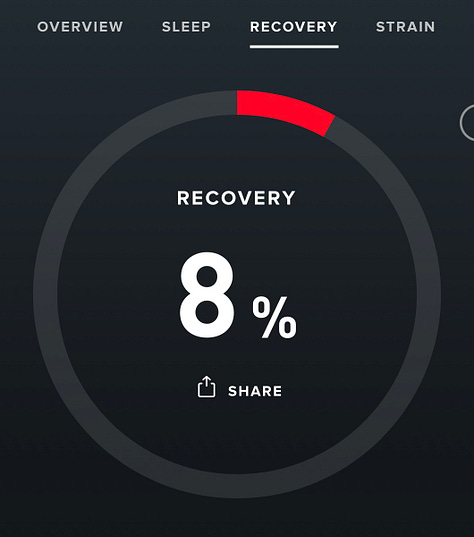
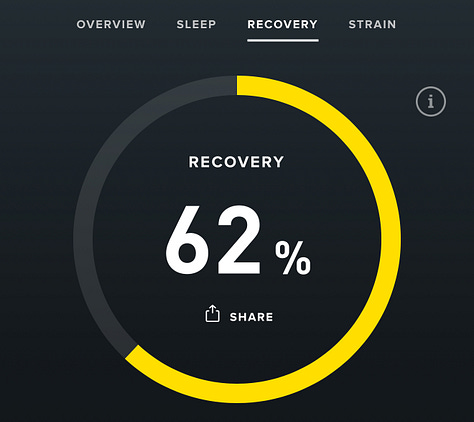
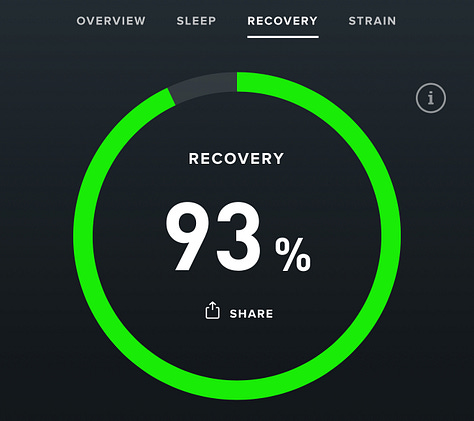
For this, I use a device like the Whoop, which monitors sleep and calculates recovery. Whoop provides a score with three color codes:
• Red: Poor recovery. Better to rest.
• Yellow: Moderate recovery. Training is possible, but don’t push it.
• Green: Optimal recovery. You’re at peak performance, so no excuses.
If Whoop shows red, I rest. If it’s yellow or green but I still feel tired, I evaluate case by case.
Can I Train If I Don’t Feel Well?
For many, the answer would be a firm “Absolutely not.” But for those of us addicted to sport, the answer is more nuanced: it depends.
• Headache or stress: A light run often helps me relax and reset.
• Congestion or a mild cold: A swim, as long as the water isn’t too cold, can work wonders (luckily, living in Singapore, cold water isn’t an issue!).
• General Rule:
• If the issue is above the neck (headache, mild cold), you can train.
• If the issue is below the neck (stomach issues, body aches), it’s better to rest.
Discipline as a Basis for Decision-Making
Following a daily routine, listening to your body, and making decisions based on objective data like recovery scores are valuable tools for maintaining consistency in training without falling into indulgence or excess.
Training every day isn’t just easier—it’s a strategy to eliminate excuses and improve your quality of life. And when your body asks for rest, grant it. Because true discipline isn’t just about doing—it’s also about knowing when to stop.
How to Push Beyond Your Limits
An ambitious goal is the first step to surpassing your limits. It could be running a distance you’ve never attempted, reaching a certain speed, completing a challenging cycling route, improving your swim time, or simply signing up for a race.
Why Signing Up for a Race Helps
A competition is often the simplest way to stay disciplined. Once you’ve signed up, the goal becomes real: you want to succeed, you’ve committed, and you have to train. No excuses.
When you think about races like a marathon or an Ironman, they might seem impossible. But the truth is, anyone can achieve them with the right discipline. It’s not just about mental endurance during the race, when your brain tries to convince you to quit. It’s about daily perseverance and rigorous training over months or even years. That’s where the real mental game is.
Watch Your Limits
However, training to push your limits requires caution. Pushing too hard without awareness can be dangerous. I spent years wondering if the chest pains I felt were intercostal muscle aches or if my heart palpitations were caused by acid reflux. I kept training with determination but always feared something might happen.
Eventually, I learned an important lesson: fear is useful because it keeps you alert. But living in constant anxiety is pointless. If you want to push your limits, you need to prepare intelligently.
Preparing to Push Further
1. Regular check-ups: A periodic medical check-up is essential. Just like a race car requires frequent pit stops, our bodies, subjected to intense strain, need accurate monitoring.
2. Listen to your body: Pushing beyond your limits doesn’t mean ignoring your body’s signals. It’s the opposite. Learn to distinguish between normal fatigue and a serious warning.
3. Test your abilities: Gradually challenge yourself with workouts that push your limits safely, allowing you to understand how far you can go.
The Mental Game
Pushing beyond your limits isn’t just about ignoring the voice that says, “Stop.” It’s about trusting your abilities and deeply listening to your body. True mental strength lies in balancing determination and self-awareness—knowing when to push and when to rest.
Remember: it’s not just about how far you can go, but about doing so intelligently, safely, and sustainably. Sometimes, taking a step back at the right moment can be the greatest victory.
Conclusion
Discipline is more than just sticking to a routine—it’s about building a relationship with your body and mind. Listening to your body’s signals allows you to strike a balance between effort and recovery, determination and caution. Whether you’re chasing a fitness milestone, preparing for a race, or striving for a healthier lifestyle, learning to differentiate between fatigue and laziness or between discomfort and danger is essential. Discipline guided by self-awareness not only leads to greater achievements but also ensures you enjoy the journey along the way. After all, the ultimate victory is not just pushing your limits but doing so with intelligence, safety, and respect for yourself.


